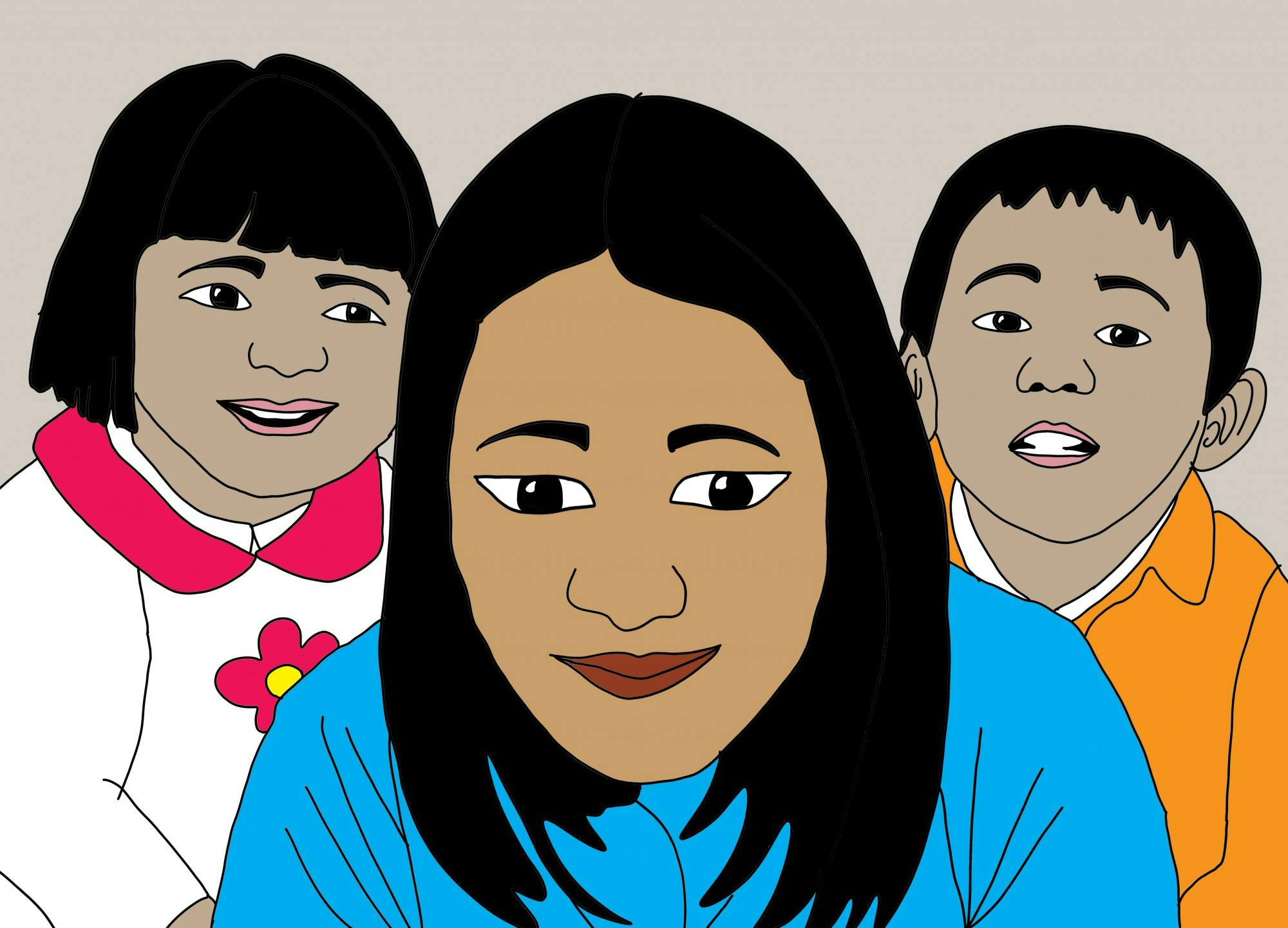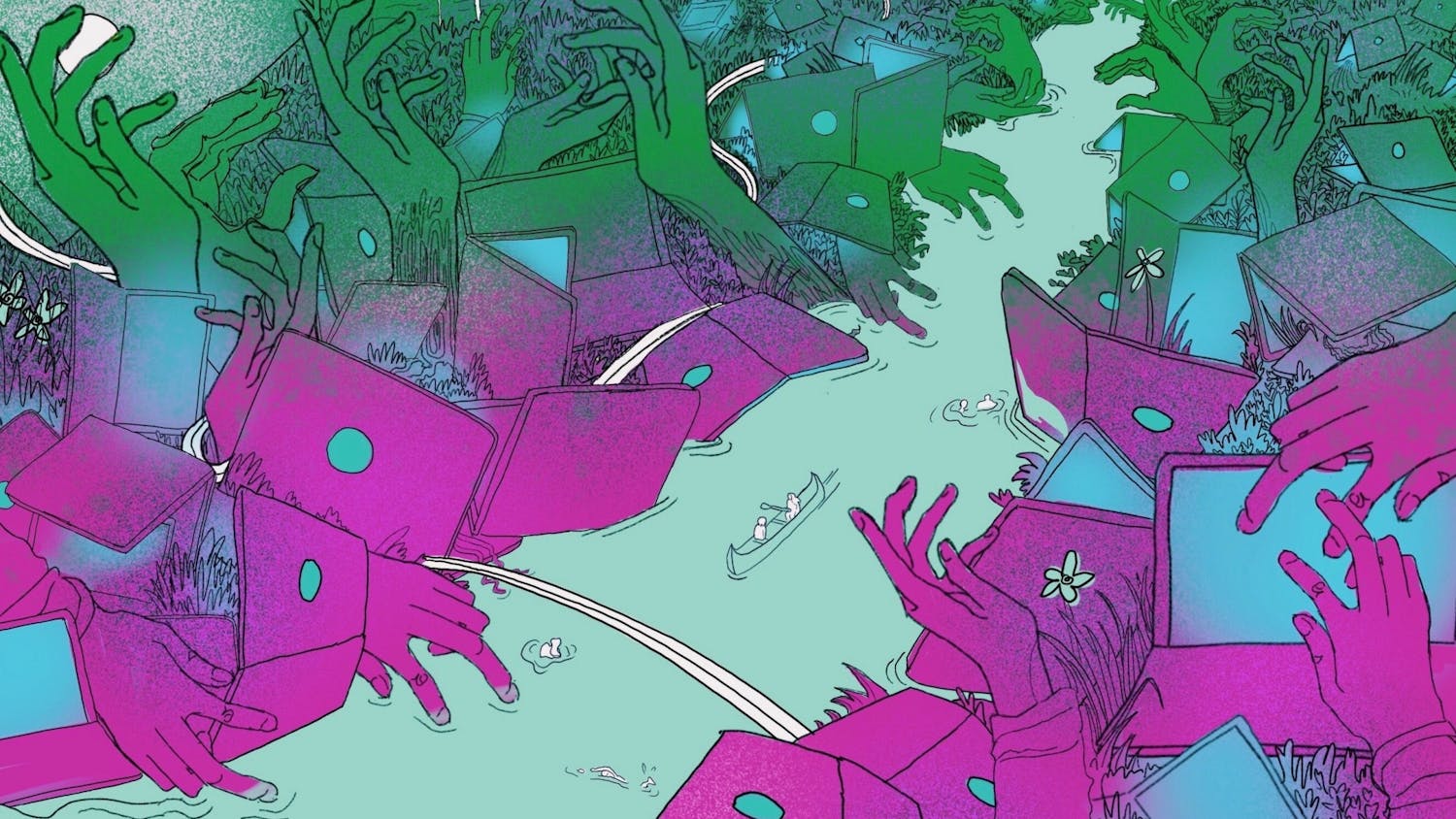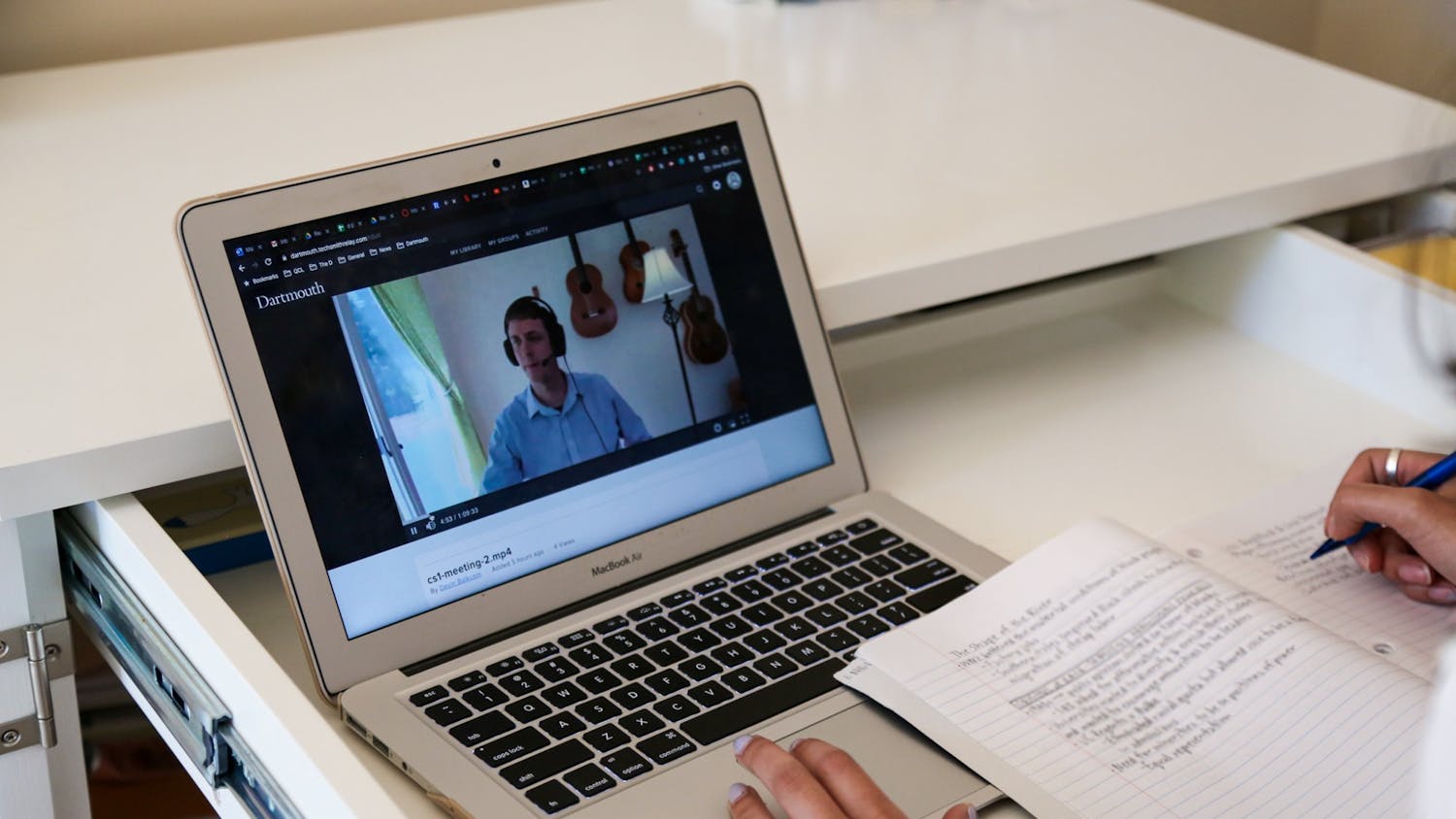The last time I was in a classroom was on March 11, for my German exam. My professor put a bottle of hand sanitizer on my desk, in direct response to my frequent anxiety-fueled comments about the coronavirus — voiced in my best German accent, of course. The next day, we got the announcement that the first half of spring term classes would be online.
My first thought was that transitioning German class to an online format would be impossible. How would we hold lively discussions? How would group projects work? For my own situation, I wondered how I would get enough practice speaking German. And I was planning on knocking out my lab science distributive requirement spring term, but I had no idea what an online lab session would look like.
Despite my doubts, classes persisted. Synchronous lectures became possible through Zoom. We were still able to have discussions, albeit a little more stunted than before. I was a bit dismayed to find that the Rassias Method, and morning drill, was still alive and kicking — just this time on Zoom.
In the beginning, Zoom was an awkward new technology that we were eager to try out. I’ll be honest: After an isolating spring break, I was excited to go to class just to see faces moving on the screen and people reacting to what I was saying. It was humanity-affirming.
The Zoom-background frenzy came hard and fast. My professors and classmates called in from Russian metro stations, the set of “The Office” and the “This is fine” meme. One of my assignments was to find a picture of myself as a kid and make it my Zoom background, so for 65 minutes on a Wednesday morning, my five-year-old twin brother and I accompanied the real me to German class.
In my geography class, our professor experimented with breakout rooms, where we were able to see each other’s disheveled faces in much more clarity. We entertained ourselves with private Zoom messaging, and then panicked at the prospect that our professor could see what we had written. The “Zoombombing” era came and went, where we worried that a stranger might drop in on our discussions about post-structuralist urbanism.
All this excitement has since faded away. Nowadays, life on Zoom is lackluster. I’ve gotten used to seeing people’s cats, hearing mysterious background noises and seeing faces freeze up before getting booted off the Wi-Fi. The novelty of “hand-raising” and “reactions” has worn off. The once-lauded chat function now lays dormant. Breakout rooms have become small-group prisons, where I’m forced to talk to people I don’t know about a reading I didn’t do.
I’ve settled into the tired routine of joining calls where half the participants have their video off, watching professors fumble with the Zoom controls and waving “goodbye” while aiming my cursor at the “Leave Meeting” button. Some days, I force myself into this virtual world of knowledge transfer. Other days, the effort of clicking on a Zoom link is insurmountable.
I’ve realized nothing can replace the spontaneity of in-person class. I want to chuckle at my professors’ jokes without causing excessive feedback. I want to start speaking without having a fully formulated thought ready. Instead, when I try to explain something, I feel like I’m wasting precious Zoom minutes.
Besides Zoom, this spring saw the rise of the reading response and other forms of busywork. Additionally, weekend deadlines have become the norm. It seems like “Sunday at midnight” is much more enforceable than “Monday in class.” Assignment due dates run like clockwork, while my motivation to meet them changes with the weather.
Amid the monotony of remote learning, there have been some pleasant surprises. One of my assignments was to make a TikTok; another was to pitch a new Netflix show. In my government class, I’ve maintained pen pal-like correspondence with one of my classmates, in which we discuss the Soviet satellite states and “Rick and Morty” on the class blog. I’ve made it to office hours a whopping four times this term, which is a record for me.
What I miss most is getting to know my classmates. I’m not any closer to my peers now than I was when this term began. Normally I like to shuffle up my classes each term so I can meet people from different majors, but that means I started this term without seeing many familiar faces. Even though I champion the cold call, it no longer seemed worth it to reach out to a near-stranger to ask a question about homework. Besides, it feels like nobody is even doing the homework.
Despite the social aimlessness, I still feel like I’m learning a lot. The lax grading policies allow me to study without stressing over remembering every single detail. This term has been marked by more academic reflection and less academic output.
Beyond academics, the online term has been beneficial to my lifestyle. I eat lunch, for one. I sleep nine hours a night. I joke around with my brothers because it feels like we’re kids again, all under one roof. And I can’t forget the perks of living at home. For example, I can pet my dog when I’m sad instead of hugging my feather-deficient dorm pillow. I can rotate through the same two pairs of leggings every week and no one will notice.
I’m glad I got to spend five terms on campus, and I don’t mind putting in the time at home. I’ve reached a place where I feel confident enough to continue my studies remotely. In fact, I’m signed up for another round of online classes this summer.
When I miss Dartmouth, I take my laptop out to my front lawn to simulate studying on the Green. I’m lucky enough to have a space to work outside without worrying about social distancing. Besides the dirt patches and crabgrass, it does feel like I’m sitting in the center of campus. With some imagination, my neighbor’s house looks just like Dartmouth Hall.




